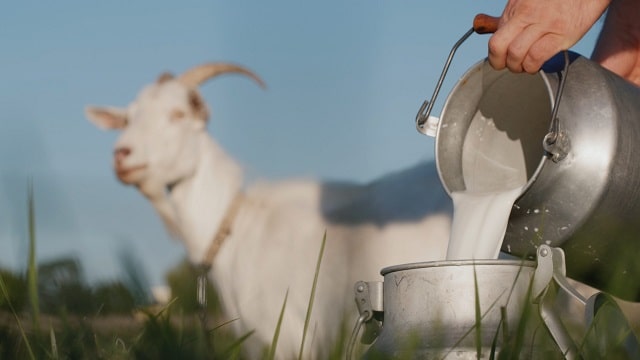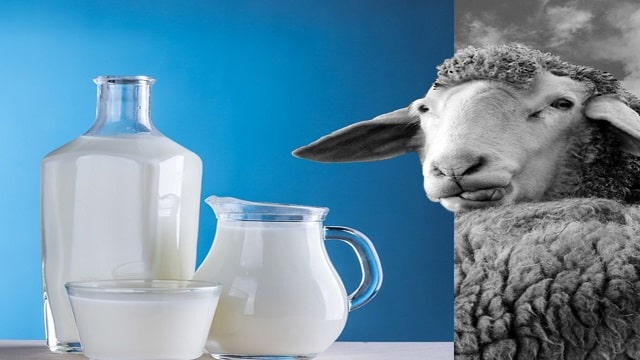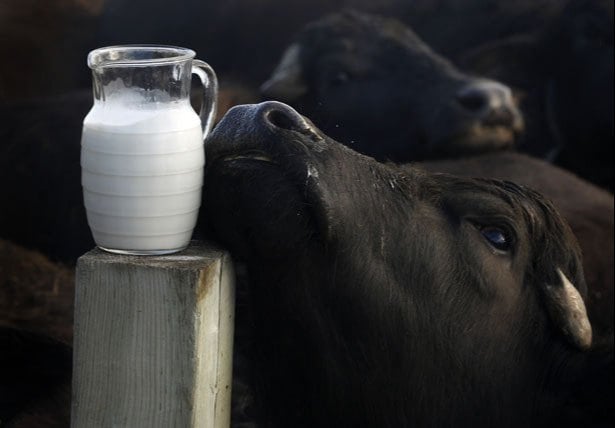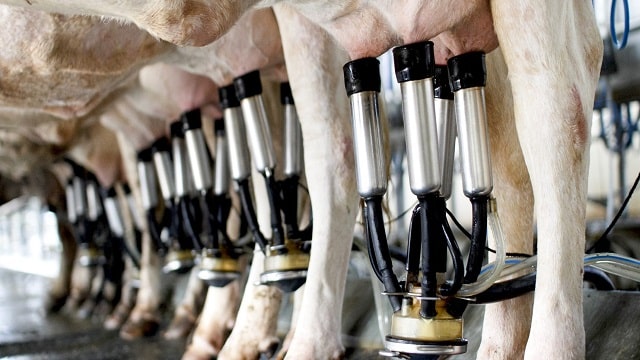Alternative Sources Of Animal Milk Other Than Cows
Are you bored with cow’s milk? Come on, try the milk of other animals such as goats, sheep, camels and horses which are no less nutritious! Find the benefits and nutritional content here.
Milk is one of the main nutritional sources which is rich in protein, calcium and other important nutrients needed for the growth and development of the human body.
Apart from cow’s milk which is commonly consumed, there are various types of milk from other animals which can also be a good choice to meet our nutritional needs.
In this article, Doctor will explain several types of milk from animals other than cows which are often used as a source of nutrition for humans, as well as the nutritional content contained in them.
1. Goat Milk

Goat’s milk has long been a popular alternative for those who have an allergy to cow’s milk or are looking for variety in their milk consumption. Goat’s milk has similar nutritional content to cow’s milk, but with some interesting differences.
The fat content in goat’s milk tends to be lower and easier to digest compared to cow’s milk, making it suitable for people who have digestive problems.
In addition, goat’s milk also contains more short chain fatty acids, which are believed to have health benefits such as increasing the absorption of calcium and magnesium.
Goat milk nutritional content
- Protein: Goat’s milk contains good quality protein, with complete amino acid content.
- Fat: Although the amount of fat in goat’s milk is lower than cow’s milk, it contains fatty acids that are easier to digest.
- Calcium: The calcium content in goat’s milk helps strengthen bones and teeth.
- Vitamins and minerals: Goat milk contains various important vitamins and minerals such as vitamin A, vitamin B12, riboflavin, phosphorus and potassium.
2. Sheep’s milk

Sheep’s milk is a source of milk that is rich in nutrients and has long been consumed in many cultures around the world. Although not as popular as cow’s milk, sheep’s milk has similar nutritional content to goat’s milk, with some unique differences.
Sheep’s milk has a higher fat content than goat’s milk and cow’s milk, giving it a richer and creamier taste. In addition, sheep’s milk is also rich in calcium, protein, and vitamins.
Sheep’s milk nutritional content
- Protein: Sheep’s milk contains good quality protein, important for the growth and repair of body tissue.
- Fat: An alternative source of animal milk other than cow, the fat content in sheep’s milk gives it a rich and creamy taste.
- Calcium: The calcium content in sheep’s milk helps maintain healthy bones and teeth.
- Vitamins and minerals: Sheep’s milk contains a variety of vitamins and minerals including vitamin A, vitamin D, phosphorus, and potassium.
3. Buffalo milk

Buffalo milk is a type of milk that is quite popular in several regions of Asia, especially in India. Buffalo milk has similar nutritional content to cow’s milk, but with several striking differences.
Buffalo milk has a higher fat content than cow’s milk, giving it a richer and creamier texture. Apart from that, buffalo milk also contains more protein and calcium than cow’s milk.
Nutritional content of buffalo milk
- Protein: Buffalo milk contains good quality protein, important for the growth and repair of body tissue.
- Fat: The fat content in buffalo milk gives it a rich and creamy taste.
- Calcium: The calcium content in buffalo milk helps maintain healthy bones and teeth.
- Vitamins and minerals: Buffalo milk contains a variety of vitamins and minerals including vitamin A, vitamin D, phosphorus, and potassium.
4. Horse Milk

Horse milk has long been consumed in Mongolian culture and other Central Asian countries. Horse milk has unique nutritional content and is different from cow’s milk.
Even though it has a lower fat content, it contains more protein, vitamins and minerals than cow’s milk. Horse milk is also known to contain omega-3 fatty acids which are beneficial for heart and brain health.
Nutritional content of horse milk
- Protein: Horse milk contains good quality protein, important for the growth and repair of body tissue.
- Fat: Although the amount of fat in mare’s milk is lower than cow’s milk, it contains omega-3 fatty acids which are beneficial for heart and brain health.
- Calcium: The calcium content in mare’s milk helps maintain healthy bones and teeth.
- Vitamins and minerals: Horse milk contains a variety of vitamins and minerals including vitamin A, vitamin D, phosphorus and potassium.
Apart from cow’s milk, there are various types of milk from other animals which can be a good alternative to meet our nutritional needs.
Each type of milk has unique nutritional content, but in general, they contain protein, fat, calcium, and various vitamins and minerals important for the health of the human body.
By choosing a variety of different milk sources, we can enrich our nutritional intake and achieve a balanced diet to maintain optimal body health.
However, for individuals who have allergies or intolerance to certain milks, it is recommended to consult a doctor or nutritionist before consuming alternative milks.
